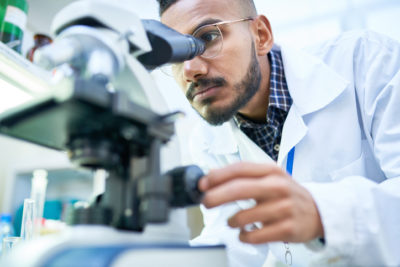How a New Discovery May Change the Lives of People with Alcohol Use Disorders, Chronic Pain and Mood Disorders
Addiction very often goes hand in hand with “co-occurring disorders” like chronic pain and mood disorders. For example, alcoholism and depression often co-occur, but until only very recently, treating both conditions simultaneously with one medication seemed a pipe dream. Similarly, treating co-occurring chronic pain and depression with one medication was also unheard of.
That may now be changing, thanks to recent findings at Purdue University. A team of scientists there has discovered two peptides that derive from a protein found in plants like spinach, and that hold therapeutic potential for multiple mental disorders. As it turns out, these peptides selectively activate therapeutic pathways for treating alcohol use disorders, chronic pain and mood disorders— without also activating the pathways that, (when activated), cause negative drug side effects.
For lead scientist Richard van Rijn, the discovery is good news. Van Rijn, an assistant professor of medicinal chemistry and molecular pharmacology, explained why in a January 3 press release:
These disorders [alcohol use, chronic pain and mood disorders] are currently not adequately managed. Better medications that take a more holistic approach and produce fewer side effects will be beneficial. We have discovered that two peptides—which are naturally metabolic products of Rubisco, a large protein found in many plants like spinach—may aid in the development of these new medications.
Treating Alcoholism and Depression Together – The Future of Addiction Treatment
If van Rijn is right, the future of addiction treatment will include medications with less side effects that treat not just the addiction alone (in this case alcohol) but also co-occurring pain and depression. And that future is right around the bend. Purdue is currently awaiting patent approval for pharmaceutical technology that simultaneously treats alcohol use disorder and depression. Thus far, the Purdue drug has proven effective in preclinical tests in reducing alcohol use, and has the pharmacological capacity to reduce depression without causing seizures (a dangerous side effect that other new drugs have caused).
Van Rijn cited more reasons to be optimistic about these peptides in relation to the development of new and better medications for alcohol use disorders, chronic pain and mood disorders:
- The peptides appear to be orally bioavailable and to penetrate the blood-brain barrier, according to preclinical studies. (For a drug to effectively treat a disorder of the central nervous system, it reportedly will need to do both.)
- And, the peptides are already commercially available in anti-aging skin products— and are reportedly under investigation in preclinical studies for their ability to regular dietary intake.
Van Rijn is collaborating with Purdue professors Darci Trader and Markus Lill to improve these peptides to make them more effective.
Their discovery is published in the Dec. 24 edition of European Neuropsychopharmacolgy.
The Purdue discovery could not come at a more critical time: almost 21 million Americans had a drug or alcohol problem in 2015, according to the Substance Abuse and Mental Health Services Administration (SAMHSA). Alcoholism is afflicting more and more Americans— as many as one in eight, one recent study said. And depression, which can be nothing short of devastating for those who suffer from it and their loved ones, is the leading cause of disability worldwide.
Do you have a drinking problem? You may be suffering from depression. Get answers today.


